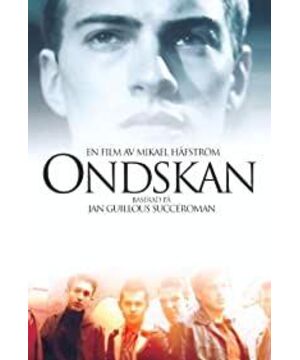. I wrote a film review just after watching "School Rules". First of all, I would like to compliment this movie. It is definitely a very classic work, and It is a classic that has been neglected. The temperament of this movie makes people unconsciously think of "The Wave", but I think this movie is better than "The Wave", and the logic is more self-consistent. If what "The Wave" shows is the collective unconsciousness of the individual towards the organization, then what the "School Rules" shows is structural violence.
I have always believed that many things in the world cannot be solved by "reason" alone. Sometimes violence is necessary. This is the historical legitimacy of the revolution. Interestingly, in the face of organized violence from seniors, the protagonist vacillates between resistance and endurance, but his roommate persuades him to learn from Gandhi. —— Kneeling and resisting: We must resist, and we must not hurt those who bully us. However, what is quite ironic in the end is that learning Gandhi can only provoke fire to the upper body. When others see that you are neither tame nor daring to resist, they will only worsen you and bully you. Therefore, the "Gandhi roommate" finally had no choice but to transfer to another school. Under our various tortures, the protagonist's violent resistance is the most effective. This makes people think of Gandhi and Mandela, these people who have been promoted to the altar by the colonists, they did allow the colonists to leave the colony unscathed and honorably, but India is still India, and South Africa is South Africa. Therefore, this movie actually tells the truth. In a certain environment, it is impossible not to resist. It is also impossible to resist like Gandhi. Therefore, the protagonist went from Gandhi to violence, and finally fought his stepfather. . We found that violent resistance seems fierce, but the cost is very low, and the seemingly harmonious but long-term endurance of slavery and oppression is costly.
What is worth thinking about is, how can upper grade students realize the oppression of lower grade students? I think that on the one hand, it is due to the school's regulations and the various departments of the school operating according to their wishes, and on the other hand, it is the high degree of organization of senior students. Organization can bring power, without organization there is no power. The upper grades are organized with a clear division of labor, so they collectively oppress the lower grades. However, the lower grades are all in a mess, doing their own things, but begging for exemption. Let's imagine that if the lower grades were organized like the movie "The Wave" to respond to the oppression from the upper grades, it would be hard to predict who would win and lose. Therefore, there are two kinds of resistance. One is the hero's courage as in the plot. Perhaps this can save the protagonist from personal oppression, but after all, the power is limited and it is difficult to eliminate the oppression of the upper grades on the lower grades as a whole. The second type is to form an organization like "The Wave", which can fundamentally overthrow the tyranny of the upper grades.
Of course, the movie also has its shortcomings, that is, it does not explain where the power of high school students comes from, and how they can decide who is expelled and dropped out. The principals and teachers are supposed to be the real power holders of the school. They are in the third year of high school. The student group looks so timid, which does not fit people's daily logic. The shortcoming of "Inspur" is that it fails to explain why students have such a strong sense of conversion to the organization of Inspur, because people are subjectively active, and people will not unconditionally belong to an organization and fight for it. "The shortcoming of "is not showing this kind of initiative of people."
But in general, these small flaws cannot cover the light of these two films.
View more about Evil reviews











